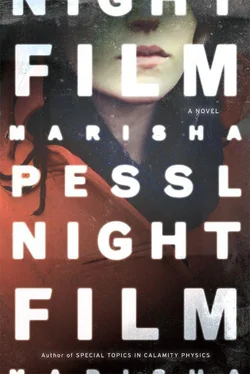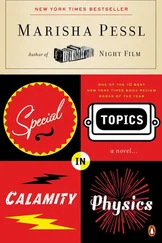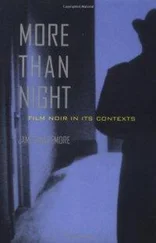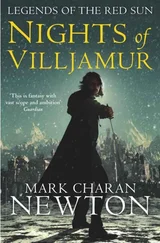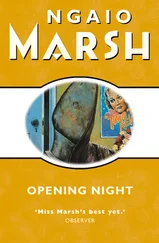“Romeo and Juliet,” I said.
“ And Hopper and Ashley. Ashley and her father fought horribly over it. He threw her into the car, locked the doors, and told her she was going to Houston whether she liked it or not. She could tell the boy the truth or not. But Ashley decided not to. She said to love someone who is dying is torture. She’d rather the boy hate her, because within that hate is the motivation to move on, to forget, to vanquish — better that than be gutted by loss, to long for something that can never be. And for that deep love to turn into something else, like pity or revulsion — Ashley couldn’t bear it. She cut all ties with the boy. And went to Houston. She almost died there, but it was more from a broken heart than the disease.”
Gallo fell silent, her hardened profile softened, ever so slightly.
“Ashley got better?” I asked, after a moment.
“Yes. She went to Amherst. She had to leave early spring semester due to dizzy spells and fatigue, but after she rested at The Peak she was able to return her sophomore year. And she was all right. She graduated. And then, six months ago, it began again.”
“Matilde.”
Gallo nodded thoughtfully, staring at the coffee table. My mind was spinning because two things she’d said struck me: First, the detail about Ashley leaving early her freshman year at Amherst. It had actually been mentioned in the Vanity Fair article. Reading it, I’d wondered about the reason behind her mysterious departure, and now here it was, explained.
Second, there was a question of timing.
“How long was Ashley treated at the University of Texas?” I asked.
“Eight months? Why?”
“And then she returned to The Peak?”
She nodded slowly, puzzled. “She did the maintenance therapy back in New York. Why?”
“Did the family order medical equipment for her? A wheelchair? Or something from a company called Century Scientific?”
“I ordered everything for her. The Peak was outfitted like the Mayo Clinic. Everything to keep Ashley comfortable, so she wouldn’t be needlessly disturbed. She had round-the-clock nurses monitoring her.”
“And the garbage at The Peak is burned at night?”
“Crowthorpe Falls is always swarming with Cordovites. It’s their Mecca. They migrate there from around the world, hoping for a sighting. The last thing he wanted was a fan trawling through his trash, discovering a prescription revealing that Ashley was sick and jabbering about it on the Internet. We had to protect her. Though in the end, protection is just another cage.”
It had all come together. The incinerators Nora had seen up at The Peak, the glass vial marked biohazard , Nelson Garcia’s accidental UPS delivery back in December 2004—it all made sense now, in light of Ashley’s illness. But the rush of solving these last few mysteries was almost immediately replaced with something else, a sense of hollowness, even grief.
I felt let down. I always did, slightly, when I’d come to the end of an investigation, when, looking around, I realized there were no more dark corners to plumb.
And yet — this was different. The desolation came from the realization that all of the kirin were dead. They’d never existed in the first place. Because, however much I might not want to face it, wanting something larger than life for Ashley, some other tempestuous reality that defied reason, alive with trolls and devils, shadows that had minds of their own, black magic as powerful as H-bombs — I knew Inez Gallo was telling me the truth.
And her truth razed everything, clear-cut that magical and dark jungle I’d wandered into following Ashley’s footprints, revealing that I was actually standing on flat dry land, which was blindingly lit, but barren.
“The business with you started because she was sick again,” Gallo blurted with evident contempt.
I drained my drink, feeling the scalding whiskey course down my throat.
“How’s that ?” I muttered.
She turned to me, exasperated. “I told you. Ashley was a charismatic girl. Thanks to her inventive upbringing, her solitary life at The Peak, her sickness, she had trouble distinguishing made-up stories from real life. When Ashley was ten, Astrid made the mistake of inviting a witch doctor from Haiti to reside for four months at the house for fun. She didn’t realize it would permanently uproot Ashley’s imagination, like running along a coastline filled with quietly roosting flamingos, displacing them. Suddenly, everything in Ashley’s head became riotous and squawking and in motion, all pink feathers and screeching and flapping wings everywhere. She came to believe in it all, voodoo. Witchcraft.” She shook her head. “I found spells she’d laid for me in my own room, protection from evil, or so she claimed. She was certain she’d been marked by something evil, that the devil was causing her illness. It was heartbreaking. And delusional. Ashley was terrified to be in close physical proximity to people she cared about, because she believed she’d harm them. She claimed this darkness growing inside her due to her— I don’t even know how to put it — her soul slowly being overtaken by the devil — that it made her dangerous. Lethal. The idea was, of course, absurd.”
Gallo sighed. “Six months ago, when we learned she was sick again, her mental state became especially precarious. She had periods of not knowing where she was. Or who she was. Not that it was her fault, after what she’d withstood as a child, having those staring contests with Death, over and over again. She made it clear she didn’t want to be in a hospital bed anymore, plugged into tubes and monitors, weak with morphine. Astrid refused to accept it. She took Ashley, against her will, to a clinic, hoping it’d bring her to her senses, that she’d agree to another round of treatment.”
“And that clinic was Briarwood Hall.”
Gallo nodded. “She escaped, as you know, thanks to some horny half-wit working in security. Ashley was a master at manipulation, especially men. They melted and sweated and went weak in front of her like a bunch of idiot iced teas. She vanished into thin air. It was horrifying for all of us. We’d no clue where she’d gone. Theo and Boris searched everywhere for her, but she was clever. She knew how to remain invisible. We found out later she’d shacked up in a tenement slum on the Lower East Side.”
“Eighty-three Henry Street.”
“Astrid went out of her mind with worry. By then Ashley had grown quite sick. Astrid wanted her to die at home with her family around her. Still, we had a few inklings as to where she’d go. There wasn’t a day that went by that she didn’t think about that boy. Hopper. She’d kept track of him over the years, knew he’d gotten into trouble with the law, was making a mess of his life. We sensed she’d seek him out in some way. The other option, of course, was you. ”
“Me?”
“She’d been interested in you ever since her father dealt with you snooping into his life the only way he knew how. Fighting fire with fire.”
“ Dealt with me? Is that what Cordova called it?”
A challenging look flickered across her face, but she remained silent.
“Was it a setup? Who in hell was the man who contacted me, then? John. ”
She shrugged. “Someone paid to lead you astray.”
“But what he told me, Cordova visiting all of those schools in the middle of the night—”
“A juicy fabrication. And one just salacious enough for you to blurt it out and hang yourself by your own hubris. I’m sure it was a painful lesson for you to learn, Mr. McGrath, but an artist like him needs just one fundamental thing in order to thrive. And he’ll do anything to keep it.”
Читать дальше
